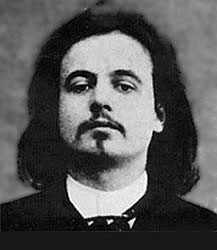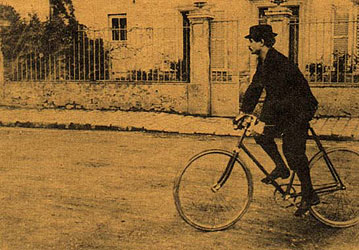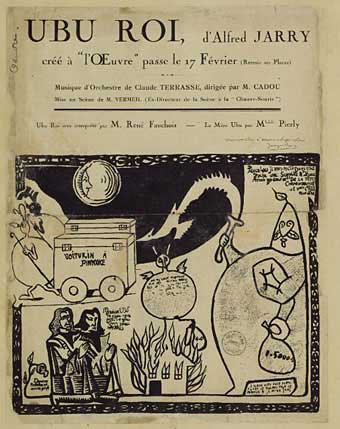Chess in the very heart of Karlsruhe…
Welcome to SC uBu!
Karlsruhe is a very strong district, with over 30 chess clubs.
Our 1st team plays from the season 2013/14 in the Bereichsliga, the 2nd team in the A-class. The SC uBu is not a big club, but a very dedicated one!
uBu offers youth players and interested chess friends a very pleasant and free environment. Instead of a “0815 club life” you will experience chess in an exciting and interesting form with us. By the way, uBu offers free chess training every Saturday from 13:00 hrs until 15:00 hrs in the Barco (Ettlinger-Tor-Platz 1a).
Or just visit us in the Old Chapel Pub, Kapellenstraße 40, on Tuesdays evenings. In a relaxed atmosphere you can compete against opponents of all levels or just chat a little. No matter if you are a beginner or already an “old hand”, you are always welcome!
The SC uBu e.V. was founded on 07 June 2007 in the gallery uBu (pronounced: übü) in Karlsruhe. The gallery uBu has always been a meeting place for chess players. Under the two tenants Hubert Eßer and Helmut Reimer the chess players living in uBu got a lot of support. The uBu not only offered the chess players there a great location to play chess and to hold tournaments, but also donated a lot of playing material and prize money for the tournaments. For many of us, uBu had become the home of chess, and so it was obvious to found our own club there. Unfortunately our esteemed president Heiko Abendschön died unexpectedly in October 2011. His declared goal was the promotion of the 1st team to the division class. In the next season it’s finally time for SC uBu to get involved in the division class, we have ambitions there as well!
Qui est uBu
by Mathias Guthmann
At regular times, slightly irritated chess friends ask me the quite justified question: Why does your chess club call itself SC uBu? Actually I should grab a big glass of Absinthe in such situations, clear it on one shot and then move 1.a4 entirely nonchalantly. But no, I elegantly adjust my figures and then hammer the words: “Jarry, drama, Père Ubu, Dada, fart” expectantly into the tense tournament atmosphere.
As a rule I then look at the raised eyebrows of an astonished chess player who nods to me conspiratorially, but then nests wordlessly and somewhat embarrassedly on his queen. During the tournament there is simply no time for an exact and final answer. You would have to either stop the clocks or agree on a draw. So it is time to illuminate the origin of our club name literarily, to answer unsettled questions, and to give our numerous chess friends the possibility to get an idea of our club in advance…
In the beginning there was a gag, a joke, a student eulk, a farce: the “Roi Ubu”. Alfred Jarry wrote this drama at the age of 15, initially intended as a persiflage on his fat physics teacher. Jarry was an extremely talented dramatist, and a highly eccentric bohemian, who lingered in the bars and cafés of Montmartre in Paris, wearing a cycling outfit and a painted tie. To be more precise, he was even the star, the hero of this varied society, in which things were refreshingly disrespectful, and not infrequently one or the other anarchist deposited a homemade bomb in some establishment. Jarry, on the other hand, often preferred to use a revolver on his bicycle tours, which he then fired instead of ringing a bell. “Isn’t that beautiful like literature,” he used to say with a disarming smile after such jokes. The “Fin de Siècle” was full of scandals, e.g. the Dreyfus affair shook the whole of France and drew deep trenches through the country. Emil Zola wrote his “J’accuse”, in England the sensational inbreeding trial against Oscar Wilde took place. At that time the French government, together with the Catholic Church, cultivated a policy of oppression, forgetting the achievements of the revolution, liberté, égalité, fraternité. Unpleasant critics were sent to the hell of the penal colonies without much ceremony. Moreover, a latent antisemitism became quite acceptable.
So it was at precisely this time that the figure of “Roi Ubu” appeared on the Paris stage together with his creator Alfred Jarry, reckoning with the prejudices, resentments and coquetry of the bourgeoisie.
The “peculiar phenomenon”, in which everything was “absurdly artificial”, drank “two large glasses full of unmixed absinthe” at the table. After the banquet, “this clown” climbed on a chair, announced the death of one of the guests in his “choppy, bizarre” way of speaking and at the same time pointed a large-caliber pistol at him. That he had a certain “reputation as a gunman” increased the panic of that society.
Thus, after an incident that had been vouched for by several witnesses, France’s noble poet André Gide in 1925 (in the novel “The counterfeiters”) described the most curious of his fellow writers – the author of the ingenious grotesque classic ” King Ubu” and inventor of his own private science, “Pataphysics” (“Science of imaginary solutions”), Alfred Jarry (1872 to 1907).
Ubu Roi was first performed on 10 December 1896. Already the first word “Merdre”, a distorted expression for “shit”, translated as ” shit” or “shitdre” shocked the audience.
The parquet raged, violent conflicts, boxing fights and face slaps occurred. The actor of the Ubu staccated the sentences into the Théâtre de L’Œuvre – like Jarry himself spoke – the tumult was monstrous. Only when the theatre director extinguished the light the audience calmed down for a short time, a tranquillity that was only of short duration, because the next “Merdre” caused the audience to get back on their seats and scream at the performance. Nevertheless, these happy ignorant people experienced the birth of the “Absurd Theatre” that evening.
A brief look at the plot:
The primitive, cowardly, greedy and power-obsessed Père Ubu is instigated by his wife, Mère Ubu, to usurp the Polish throne by massacring the honourable King Venceslas and his family. With the support of Captain Bordure and his grooms, Ubu succeeds in the deadly coup d’état and becomes a relatively popular ruler until he decides – as the first government measure, as it were – to have all nobles and civil servants executed (i.e. “brainless”) for the purpose of his personal enrichment. Ubus no less radical tax policy involves not only the unfounded multiplication of all direct and indirect taxes, but also their violent collection by the king himself. When Ubu begins to tyrannize the Polish population more and more, the now renegade Bordure animates the Russian tsar Alexis to intervene against the unleashed murdering despot. So while Ubu is on a campaign against the Russian army, the “regent” Mère Ubu is overthrown by the rightful heir to the throne Bougrelas, but not without first robbing the treasury. Although Ubu himself is crushed by the Russian army, through cowardice and treachery he can flee with his wife to France, where he wants to be proclaimed maître des phynances. (Wikipedia)
The plot looks familiar to you? But yes, Jarry makes unrestrained use of Macbeth, the resulting grotesque in the style of a Rabelais, this orgy of violence and words, this stroke of genius, this booze, binge, burp and insult piece was performed only once, but was of course the highlight of the Parisian theatre season of 1896.
Ubu, the gaseous and caricature-like state, the small intestine and the splendour of emptiness. For here, where perhaps everything is stucco and talmi, even a tree of wood – and this great bluff that lets the dough of phenomena rise – there is nothing to prevent the catabatic downwind to stucco and blah-blah having begun long before the form, which the supposedly real objects have accepted today – and that everything, before it is born in the cancerous and imaginary state – can only be born in the cancerous and imaginary state – which does not prevent things from being less wrong than one thinks, that is…
There’s the facade and not nothing behind it. The ventriloquism of bubbles and intestines is absolute. Every thing is complacent, imaginary, an edema, a multiple cancer, a mourning song. There is not even the possibility of being born and dying. That is reserved for the stone, the flesh, the blood, for that which has weight. For pataphysics, all phenomena are absolutely gaseous. Even the recognition of this state, even the consciousness of the fart and the itching and the senseless coitus is in no way serious… and the consciousness of this consciousness, etc., is absolutely gaseous. Without goal, without soul, without words, and itself imaginary, but also necessary, the pataphysical Pardox is simply dying.Jean Baudrillard
Over time the creator of the Ubu himself became the Roi Ubu. He identified himself with the figure he had created and spoke about himself only in the pluralis majestatis. Thus he himself became an art figure, without him no absurd theatre, no surrealism, no Dada…
By the way, Jarry was a highly ambitious athlete, who daily did extensive cycling tours and went to his limits, but at the same time he poured unimaginable amounts of alcohol (absinthe) into himself, later he switched to the ether, which promised him even more fantastic intoxication states. Alfred Jarry died in 1907 at the age of 37. His last words were supposed to have been a request for a toothpick.



References:
Jarry, Alfred: King Ubu
Drama in five acts. Edited by: Bossier, Ulrich. 80 p.
ISBN: 978-3-15-009446-4
Alfred Jarry:
” Views About the Theatre”, published by Die Arche, Zurich; 48 pages; 2.80 Marks.
Ubu sequels:
Alfred Jarry: King Ubu / Ubu Hahnrei / Ubu in chains, dtv (1984) ISBN 3423054263
